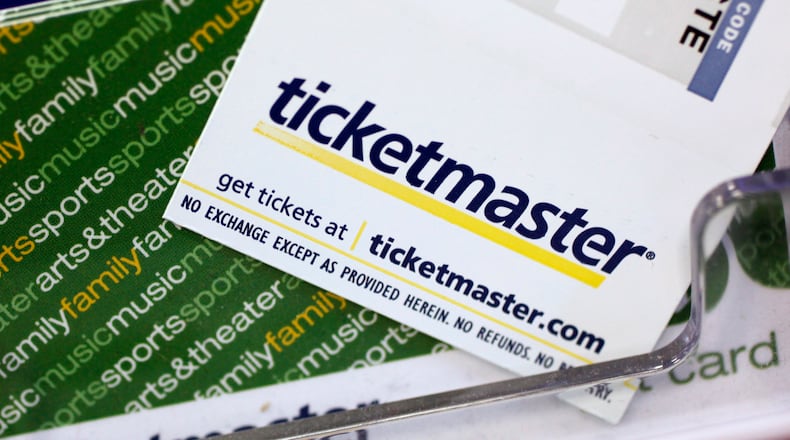“House Bill 563 targets third-party sellers who disguise themselves as official venues, artists, or ticket platforms. These websites exploit legal loopholes to make their pages look nearly identical to legitimate ones, often using similar logos, names, and designs. They markup ticket prices dramatically, and in some cases, sell tickets they don’t even own,” Hiner told the committee. “The result is bad for everyone.”
The bill would prohibit “online ticket marketplaces or ticket resellers from using words, images, trademarks, copyright, web design or internet addresses that are identical or substantially similar to those associated with a place of entertainment without written permission from the place of entertainment,” according to the legislature’s nonpartisan analysis.
Despite Hiner’s stated scope, H.B. 563, as written would impose regulations on the entire ticket-selling industry, from the entertainment venues themselves to the online marketplace that disburses tickets to live entertainment.
The first change Hiner’s bill proposes is to require entertainment venue operators to disclose to consumers, in a conspicuous manner, the all-in cost of a certain tickets upfront, including fees and surcharges.
Ticket resellers and online ticket marketplaces used to resell tickets, like Ticketmaster, would also be required to immediately display the all-in cost of a ticket.
All-in pricing has been mandated federally since May, when a Biden administration ban on “junk fees” took effect. H.B. 563, however, would additionally require ticket resellers and marketplaces to disclose how much more expensive the resale ticket is compared to the base cost from the venue operator.
Ohio customers would also be shown an itemized list of the surcharges, fees, and other costs that were tacked on to the price of a ticket. And, they’d be guaranteed that their ticket price wouldn’t increase over the course of their ticket buying session.
In addition, H.B. 563 contains a couched safeguard against large-scale ticket buyers in certain contexts. The bill reads: “No person shall ... employ or compensate another person to purchase tickets for the purpose of reselling the tickets if the practice is prohibited by law or if the place of entertainment posts a policy prohibiting the practice.”
House Speaker Matt Huffman, a Lima Republican who holds doses of skepticism toward both government interference and toward companies that take money out of Ohio, told this outlet that he “generally support(s) the concept” of government regulation in this space.
“We’ll have to do some exploration on it. People want to pay to see a concert, and we understand also that the people who market tickets, who gather tickets together and get them to the public, they should be paid. But, there also should be clarity in exactly what their fees are in those sorts of things,” he said.
Huffman said Ticketmaster and similar companies should be paid for the services they provide, “But, there also should be clarity in exactly what their fees are, and those kind of things.”
“It’s a service that Ticketmaster and other people perform, but in some cases, it’s not transparent and it borders on fraud,” Huffman said.
Hiner did not immediately respond to a request for comment.
Violations of the bill, if it were to become law, would be considered “an unfair or deceptive act or practice.” Ohio law gives the attorney general’s office the ability to seek injunctions against violating companies, potentially costing the violating entity up to $15,000 in civil penalties per day of the injunction.
H.B. 563’s industry-wide regulations come on the heels of repeated federal action. In May, a Biden administration rule banning “junk fees” went into effect, forcing platforms like Ticketmaster to switch to all-in pricing. In September, the Federal Trade Commission filed a lawsuit against Ticketmaster and its parent company Live Nation for deceptive practices.
In its lawsuit, the FTC said the platform deceived artists and consumers by advertising lower ticket prices than what consumers must pay and falsely claiming to impose strict limits on the number of tickets consumers can buy for an event.
In reality, the FTC said, Ticketmaster coordinates with ticket brokers who bypass those ticket limits. The FTC said brokers use fake accounts to buy up millions of dollars worth of tickets and then sell them at a substantial markup on Ticketmaster’s platform. Ticketmaster benefits from the additional fees it collects from those sales, the FTC said.
For more stories like this, sign up for our Ohio Politics newsletter. It’s free, curated, and delivered straight to your inbox every Thursday evening.
Avery Kreemer can be reached at 614-981-1422, on X, via email, or you can drop him a comment/tip with the survey below.
About the Author

